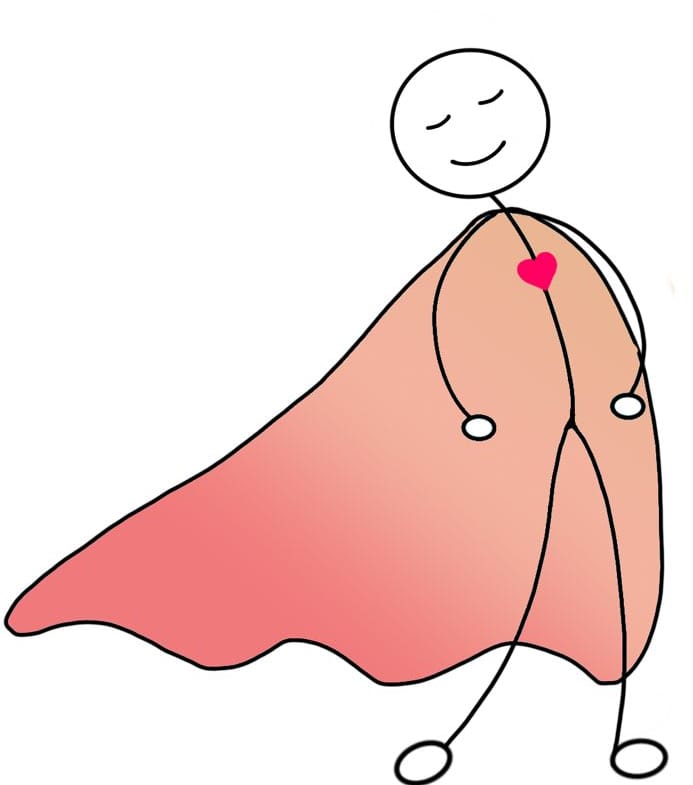Great Expectations!

People judge. I judge, and if I’m honest, like many, I have caught myself saying, “I don’t judge, but…” Well, therefore, I do judge. It’s not a bad trait; our brains are wired to make decisions based on our judgements. We are told it’s wrong to do so, but by fighting it, we tend to categorise actions as either good or bad. To me, it’s important to consider what we do when we observe ourselves judging, as it drives us to make comparisons and decisions, shaping how we view the world and our relationships.
The Origins and Nature of Judgement
Judgement is a deeply ingrained human behaviour shaped by cultural, societal, and psychological factors. Historically, judgement helped us assess situations and people quickly for survival. However, in today’s society, this instinct often manifests in ways that can be harmful. Social media amplifies this tendency by presenting a curated version of life, contributing to unrealistic expectations and intense social comparison. We often forget that what we see online is only a highlight reel, which can stir feelings of inadequacy and prompt harsh self judgement.

The Influence of Expectations and Social Comparison
Society’s growing expectations of what we deserve influence our behaviour significantly. We compare ourselves to others and feel pressured to meet certain standards, often driven by social media portrayals. For instance, the immense pressure to have holidays or luxuries can make us question our own choices and feel that we deserve more, even when our basic needs are met. This comparison can lead to self judgement and dissatisfaction. Reflecting on my own experiences, I sometimes tell myself I deserve better, but I question whether this message originated from within or from external influences. Did I impose these expectations on myself, or did I listen to too many voices around me? Did I spend too much time on social media?
The Misconception Between Needs and Wants
There is a common misconception about our physiological needs versus the language we use when demanding rights. While we have basic needs, and most people in the developed world have these met, everything beyond that—luxuries—are increasingly being viewed as rights. Reflect on whether you would truly need a holiday, a new home, or a new bag if not influenced by external messages or the envy stirred by others. This mindset blurs the line between genuine needs and perceived wants, often driven by societal expectations rather than personal necessity.

Expectation vs. Reality
Expectations are often shaped by societal norms, media portrayals, and personal desires. They create a mental image of how we think things should be—whether related to career success, personal achievements, or lifestyle choices. These expectations can be based on idealised standards that are difficult or impossible to meet.
Reality, on the other hand, involves unforeseen challenges, compromises, and limitations that can contrast sharply with our initial expectations. This discrepancy can lead to feelings of disappointment or inadequacy.
Affordability and Subjective Value
We often say, "That costs a lot of money," in conversation, but it's usually not meant to reflect true value. What may seem expensive to one person could be affordable to another, and vice versa. It's crucial to recognise that financial situations vary greatly among individuals and families. What is within one person’s budget might be out of reach for someone else. Therefore, it's important to avoid making others feel inadequate or judged for their financial choices or limitations. Instead, we should strive to understand and respect the diverse financial realities that people face and support that they are doing their best.
The Gendered Nature of Judgement
Judgement also intersects with societal roles and expectations, particularly concerning gender. Women often face judgement whether they choose to stay at home as full-time housewives or attempt to balance both career and domestic responsibilities. Similarly, men are judged for not providing enough if their partner stays at home, reinforcing traditional gender roles. These societal norms lead to unfair scrutiny based on personal choices and illustrate how deeply ingrained judgement can be.
Fear of Sharing and Avoiding Judgement
Fear of judgement can lead us to withhold our true selves to avoid criticism. We might omit details about our lives, achievements, or struggles to escape negative scrutiny or to avoid making others uncomfortable. This fear can prevent genuine connection and self expression. Overcoming this fear involves recognising that everyone faces their own challenges and imperfections. Learning self acceptance and seeking support from compassionate individuals can help alleviate this fear and promote authentic interactions.
Calling Out Negativity with Empathy
When faced with negativity or judgement from others, responding with empathy can be constructive. Instead of reacting defensively, try to understand the source of the negativity, which often stems from others' insecurities or struggles. Engaging in compassionate dialogue can address issues without escalating conflicts. For example, if someone judges your choices, a compassionate response can create mutual understanding and respect. However, if negativity becomes overwhelming, it might be necessary to distance yourself from such individuals to protect your wellbeing.
The Psychological Impact of Self Judgement
Self judgement can be as damaging as judgement from others, leading to feelings of inadequacy, anxiety, and depression. It is crucial to practise self compassion to mitigate these effects. Recognising that no one is perfect and treating yourself with kindness can counteract the negative impact of self judgement.

Practical Strategies for Managing Judgement
Mindfulness and self awareness are effective tools for managing judgement. Becoming aware of when and why we judge can help us alter our thought patterns. Developing empathy for ourselves and others reduces the inclination to judge harshly. Considering different perspectives and recognising that everyone faces their own challenges can create a more compassionate approach, both towards ourselves and others.
Reflecting on Our Lives
Most of us lead busy, fast-paced lives, yet often feel it’s never enough. The expectation to constantly do more can be overwhelming. Recognising this within ourselves and understanding its origins can lead to greater satisfaction. It’s important to appreciate the times we manage to enjoy life's treats; otherwise, we risk never feeling content. If you're ambitious and want luxuries as a must for no other reason than that, try to set goals based on what you want to achieve and why. Take ownership of these goals and work towards them yourself, rather than relying on others. Waiting for someone else to fulfil your aspirations is not only unfair to them but can also lead to disappointment. Remember, while human beings can be flawed, we also have the potential to achieve remarkable things and make things happen! Be happy for others when they get to achieve these things, bitterness will only harm you when comparing.
Final Thoughts: Moving Beyond Judgement
Ultimately, moving beyond judgement involves living authentically and making choices that reflect your true self, rather than conforming to external expectations. By understanding the origins of judgement, distinguishing between needs and wants, and practising empathy and self compassion, we can reduce its impact on our lives. It’s not about perfection but about being true to yourself and leading a life that you can look back on with satisfaction and peace. Remember, we can't control what others say or think, but we can learn how to manage our reactions to it.






